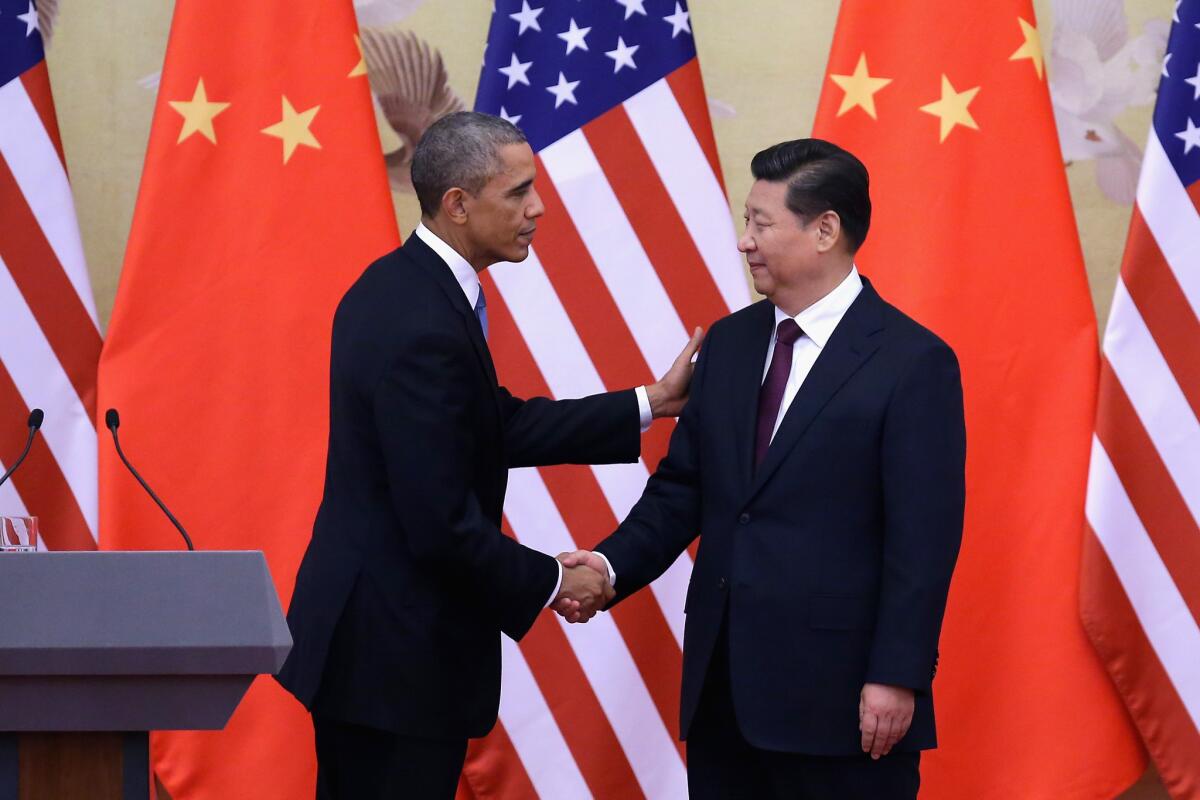Editorial: Congress needs to fast track the ‘fast-track’ bill

This week’s pledges by U.S. and Chinese leaders to cut carbon emissions overshadowed a meeting of the minds on trade that could pay dividends more quickly. They include an agreement on tariffs for high-tech goods that could boost the economies of many nations, the United States included. Several of the deals are preliminary and require other countries to join in, and some ultimately will require the consent of Congress. That’s all the more reason for the U.S. to approve the “fast-track” authority that provides a workable framework for such agreements while still giving lawmakers the chance to block bad trade pacts.
The biggest of this week’s breakthroughs was China’s decision to support a new version of the Information Technology Agreement, which would slash tariffs on advanced microchips, video game consoles, medical imaging equipment, GPS devices and a slew of other high-tech products and components. Negotiators at the World Trade Organization are expected to finish work quickly on the new pact, which would affect about $1 trillion in goods sold annually and create as many as 60,000 U.S. jobs.
U.S. exporters tend to benefit disproportionately from such deals because they face much larger tariffs than companies exporting goods to this country, where tariffs typically range from low to non-existent. More important, cutting tariffs will reduce the price of high-tech products and components, boosting demand while lowering the manufacturing cost of every other product and service that incorporates these technologies. In other words, the revenue that governments sacrifice by lowering tariffs should translate to gains for producers and lower prices for consumers.
The new Information Technology Agreement can go into effect without Congress’ approval, but that’s not the case for all of the agreements with China announced this week. For example, the two countries committed to negotiating a treaty that would promote investment by U.S. companies in China and vice versa, which would need congressional assent. But lawmakers have blocked “trade promotion authority” legislation — the “fast-track” bill — that would provide a clear path to an up-or-down vote on trade deals amid concern about agreements still being negotiated, including a controversial Pacific Rim trade deal.
But the fast-track bill would also tell the administration what to include in any such agreements,and still allow Congress to vote down any trade pact it didn’t like.
Lawmakers should stop using their worries about the administration’s trade ambitions as an excuse to impede the United States from reaching any trade deals at all.
Follow the Opinion section on Twitter @latimesopinion
More to Read
A cure for the common opinion
Get thought-provoking perspectives with our weekly newsletter.
You may occasionally receive promotional content from the Los Angeles Times.






